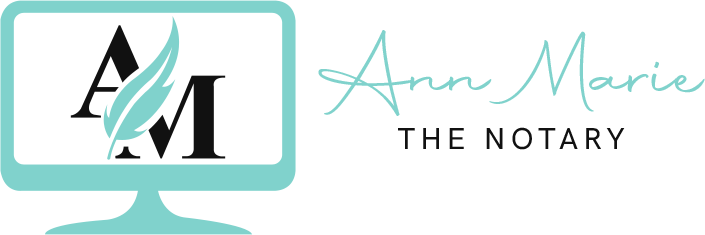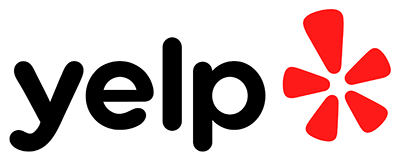The world is rapidly evolving, and so are the ways we conduct business and legal processes. Technology is at the forefront of these changes, significantly transforming various industries, including the notary profession. The introduction of digital tools, electronic signatures, and Remote Online Notarization (RON) is revolutionizing the notarization landscape, making it more accessible, efficient, and secure than ever before. In this blog post, we will explore how technology is changing the notary industry and what the future holds for notarization.
1. The Rise of Remote Online Notarization (RON):
One of the most significant technological advancements in the notary industry is Remote Online Notarization (RON). RON allows notaries to perform notarizations over the internet using digital tools and secure video conferencing technology. This means that signers and notaries no longer need to be in the same physical location, which has opened up new possibilities for remote and international transactions.
With RON, individuals can now notarize documents from the comfort of their homes or offices, making the process much more convenient. This is particularly beneficial for those with mobility issues, busy schedules, or those who live in remote areas where access to a notary may be limited. The National Notary Association and various state legislatures have been instrumental in expanding the legal framework for RON, ensuring it is a secure and legally recognized method of notarization.
2. Digital Signatures and Electronic Notarization:
Digital signatures and electronic notarization are other technological innovations that have greatly impacted the notary industry. A digital signature is an encrypted electronic stamp of authentication on digital information such as email messages, macros, or electronic documents. This type of signature ensures that the document has not been altered after it was signed and that the identity of the signer is verifiable.
Electronic notarization (eNotarization) involves the use of electronic signatures and seals on digital documents, allowing the notary to notarize documents electronically. Unlike RON, eNotarization still requires the signer and notary to be in the same physical location. However, it significantly speeds up the process and reduces the need for paper, making it an environmentally friendly alternative. For more on electronic notarization, visit our eNotarization page.
3. Enhanced Security Measures:
As technology evolves, so do the methods for securing sensitive information. Modern notarization technologies employ advanced encryption methods and security protocols to protect documents and verify identities. For instance, RON platforms typically include multi-factor authentication, which requires signers to verify their identities through multiple steps, such as answering security questions, providing a valid government-issued ID, and undergoing biometric verification.
Additionally, RON sessions are recorded and archived, providing a secure, auditable trail that can be referenced if there are ever any questions about the notarization. This level of security helps to prevent fraud and ensures that notarizations are both legally sound and trustworthy. For more information on security measures in RON, check out our Security in RON page.
4. Artificial Intelligence and Automation:
Artificial Intelligence (AI) and automation are gradually making their way into the notary industry, promising to enhance efficiency and reduce human error. AI can be used to automate routine tasks such as verifying the authenticity of identification documents and ensuring that all necessary fields in a document are properly filled out before notarization.
Automation can also assist with scheduling, reminders, and follow-up communications, streamlining the overall process for both notaries and clients. By leveraging AI and automation, notaries can focus on more complex tasks and provide a higher level of service to their clients. Learn more about how AI is being integrated into the notary industry on our AI in Notarization page.
5. The Impact of Blockchain Technology:
Blockchain technology, known for its role in securing cryptocurrency transactions, is also finding applications in the notary industry. Blockchain can provide a tamper-proof, decentralized ledger for recording notarizations, offering an additional layer of security and transparency.
By recording notarizations on a blockchain, notaries and clients can ensure that the records are immutable and verifiable by anyone with access to the blockchain. This technology is particularly promising for international transactions, where trust and verification can be significant hurdles. For an in-depth look at blockchain and notarization, explore our Blockchain in Notarization article.
6. The Future Outlook:
As technology continues to advance, the notary industry is likely to see even more innovation in the coming years. Virtual reality (VR) and augmented reality (AR) could play a role in creating more immersive and interactive notarization experiences. We may also see more widespread adoption of digital identity verification systems, which would further streamline the notarization process and reduce the risk of identity fraud.
Regulatory bodies are also evolving to keep pace with these technological changes, updating laws and guidelines to ensure that new notarization methods are secure and legally valid. Notaries who embrace these technologies will be well-positioned to provide faster, more convenient, and more secure services to their clients.
Conclusion:
Technology is transforming the notary industry, making it more accessible, efficient, and secure than ever before. From Remote Online Notarization to blockchain and artificial intelligence, these innovations are paving the way for a future where notarization is easier and more convenient for everyone. At AM Prestige Solutions, we are committed to staying at the forefront of these changes, providing our clients with cutting-edge notarization services. Contact us today to learn more about how our technology-driven solutions can meet your notarization needs.




